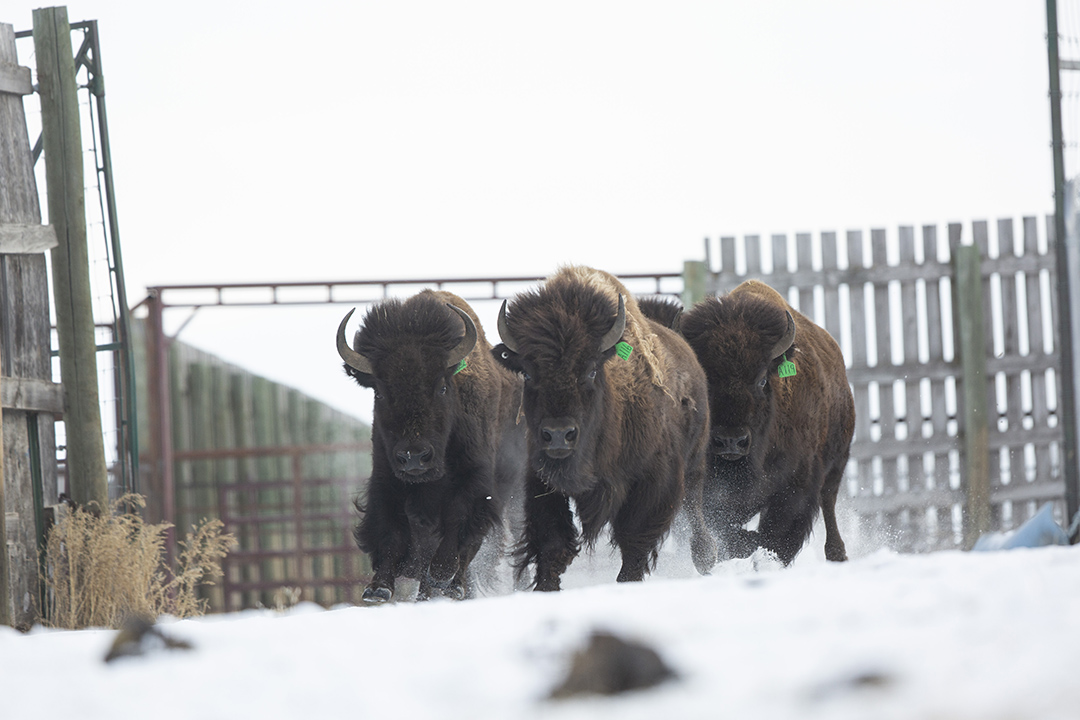
Purebred bison revival
WCVM researcher Dr. Gregg Adams is part of the research team that is featured in a Globe and Mail article on reviving the purebred bison population. Adams' reproductive research studies are taking place at the University of Saskatchewan's new Livestock and Forage Centre of Excellence.
Purebred bison – direct descendants of the animals that blanketed North America before colonization – are scant, protected and short on genetic diversity, according to an article in The Globe and Mail. Today, there are only about 1,500 purebred plains bison in Canada’s conservation herds, all descendants of 50 animals that managed to dodge hybridization in the early 1900s.
Now, scientists and Indigenous leaders in Western Canada are taking a crack at reviving the purebred bison population.
Dr. Gregg Adams (PhD), a professor in the USask Department of Veterinary Biomedical Sciences, is leading the bison project at the Western College of Veterinary Medicine that aims to develop reproductive technologies in bison to aid in their long-term survival.
Adams says he believes the project could produce 300 purebred calves over five years.
“It’s not like we’re turning back the clock thousands of years,” Adams said in an interview with The Globe and Mail. "We have a chance to do this.”
Read more on the Globe and Mail.
Adams is also one of the researchers involved in the international Bison Research Group that includes representatives from federal, provincial and territorial governments, Canadian universities and zoological parks, commercial bison producers and the World Wildlife Fund.
Since its inception in 2006, the group has established a herd of wood bison derived from Elk Island National Park. The group and its research partners have also “celebrated several ‘firsts’ since then, including the world’s first bison offspring from frozen embryos and semen,” says Adams.
Article re-posted on .
View original article.
